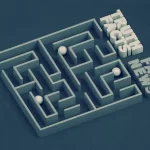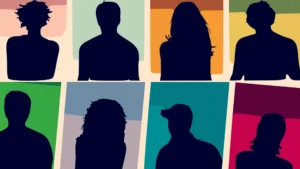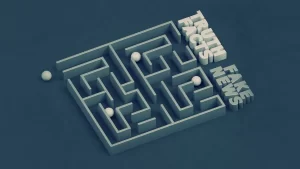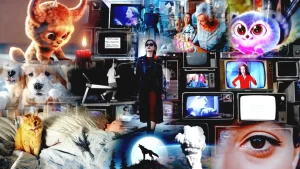
There’s no definitive view on whether AI-generated content could “drown out” human originality, but there are several perspectives to consider.
Advancements in AI creative tools, from writing to art generation, raise pressing questions about the future of human creativity according to experts. Software capable of producing original paintings, articles, and music could reshape industries.
“There is undeniable potential for AI-generated content to undervalue hard-earned creative skills,” says AI experts, “but human originality has adapted to disruption before. As long as we nurture critical thinking and ethical AI development, human creativity will endure.”
The Impact of AI-Generated Content on Human Originality
AI tools are rapidly advancing in their ability to generate content like text, images, videos, etc. that can seem authentic and creative. This could theoretically lead to an abundance of AI-created content that makes it harder for some human-created work to get attention.
Many argue that AI lacks true understanding, intent, and emotion that human creators can imbue work with. So while volume may increase, human uniqueness and creativity still provides value that AI cannot replicate. There may still be demand for authentic human voices.
There are also opportunities for collaboration between AI tools and human creators, with AI assisting to enhance and building on human ideas rather than purely replacing them. The future creative landscape will likely involve both AI-generated and human-generated elements.
Culture and arts have evolved with each technological shift, but human creativity persists – photography didn’t replace painting, movies didn’t kill theater, etc. AI content creation is just the next shift that could force creators to focus on the most fundamentally “human” aspects of their work.
There are also ethical concerns if AI allows for mass production of clickbait, misinformation, forged identities/content, etc. Regulation and developing norms around responsible use of generative AI will be important.
Issues around ethics, copyright, and regulation of AI content creation also need to be considered as the technology progresses. There is debate around whether current laws and policies sufficiently cover new issues this technology introduces.
There are open questions around if, when and how AI-generated content could displace human creativity and originality – or whether it will mostly play an assisting role. Maintaining space for human originality likely requires intentional steps, rather than assuming it will stay viable on its own. But there are good arguments on multiple sides. The future may likely see a complex interplay between automated creation and human creativity.
While AI opens new creative possibilities, it also poses risks in overshadowing human voices. An intentional, ethical and regulated approach is needed for AI to enhance rather than displace original human perspectives. But the exact impact on human creativity going forward remains complex with many open questions.
I don’t think even advanced AI matches the weirdness, absurdity, and ingenuity of which the human mind is capable. But responsible, ethical innovation and governance of these technologies remains crucial.










